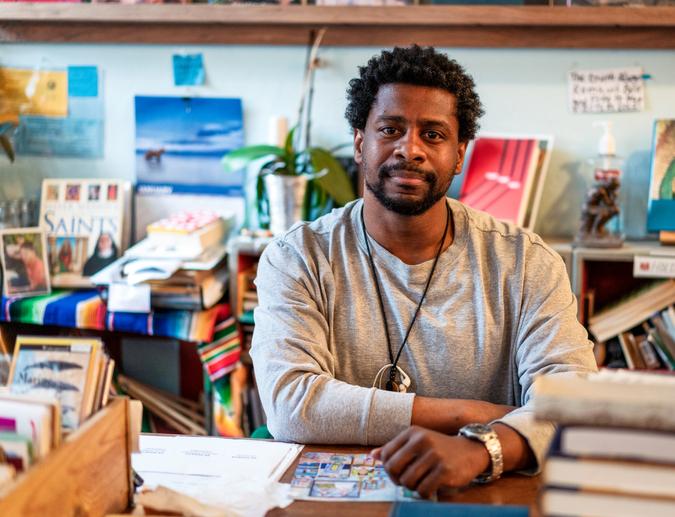
I was recently a panelist for the film viewing and discussion for American Fiction. As an editor and author, it was refreshing to see a film about the Black experience in the publishing industry. If you are not familiar, the story centers around Thelonious “Monk” Ellison, a novelist frustrated with the literary establishment’s profits from and reliance on harmful stereotypes of Black culture in entertainment.
My refreshment upon viewing the film was short-lived as I witnessed the audience of viewers laughing at Monk’s pain — a pain all too familiar for Black authors fighting to be seen and heard, as individuals, not as the monolithic parody we are often confined to in various aspects of our lives. While I understand American Fiction is a satirical film, sadness lodged itself in my throat and enveloped my spirit because the jokes and punchlines throughout the film were drenched in truth. Talk about laughing at pain … let alone your own pain.
The Reality
In 2021, 83.2 percent of editors in the U.S. were white, according to Data USA. Less than 5 percent of editors were Black. This coincides with only 5.9 percent of published authors being Black, according to the career website Zippia. This is abysmal to say the least.
Black authors deserve to collaborate with editors who understand and appreciate their manuscripts. This understanding must include knowledge and love for African American Vernacular English (AAVE), Ebonics, cultural references, and the Black American experience. The predominantly white publishing industry has massive implications for Black literary professionals and creatives. This often leads to:
- disregard for Black voices and Black culture;
- self-esteem plummeting due to misrepresentation or lack of representation;
- stereotypical images and stories running rampant in literature;
- inaccurate depictions of ourselves in literature; and
- whitewashed literature that ignores the Black experience.
The Transformation
Luckily, not all hope is lost.
I beam with joy every time I see Black self-published or hybrid-published authors because we are able to control our narrative. We host podcasts and talk shows, curate blogs, exhibits, expos, tours, and more. Gone are the days of waiting for outside validation; we validate ourselves. This makes me hopeful for Black creatives. This makes me excited for the future and proud to make further contributions via my own books, my company, Love for Words, and National Black Authors Day. Our efforts are not in vain. Our voices, perspectives, and stories make the world go around. We are Black — unapologetically.


















